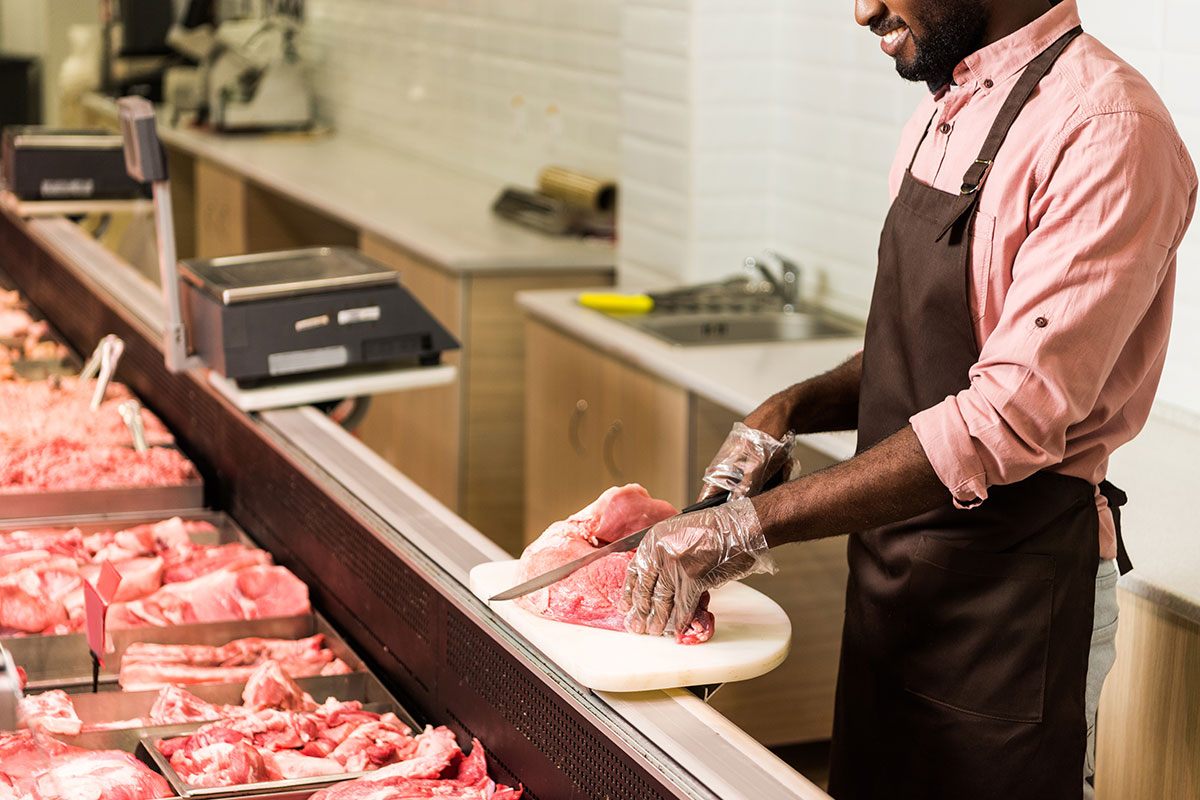By Rick Stein, Vice President, Fresh Foods, FMI

It’s hard to make sense of things when you’re riding on a roller coaster.
The fresh industry has shown enormous resilience during the pandemic, but, early on, companies found it challenging to fully understand developments — because everything was changing so quickly.
FMI’s FreshForward virtual event in August 2020 provided a much-needed industry opportunity to gather insights after months of pandemic operations. Now we’re just a few months away from the 2021 edition of FreshForward, scheduled for August 17 to 19 in Minneapolis.
That’s why I recently sat down with Barb Renner, Deloitte’s vice chairman and U.S. consumer products leader, for the latest edition of FMI’s webinar series called A FreshForward Conversation. Deloitte is FMI’s partner in FreshForward and Barb provided some timely and insightful observations about where the industry has been and where it’s headed.
Revisiting 2020 Takeaways
Barb revisited takeaways from last year’s FreshForward, including the signature breakout sessions where event attendees express their opinions. The 2020 event focused on three key topics: supply chain, consumer behaviors and sustainability/packaging. The takeaways were outlined in Deloitte's post-event report.
One crucial insight was the need to simplify the at-home cooking experience for consumers — and the fresh industry has delivered on that imperative during the pandemic.
“It was important for the industry to make it as easy as possible for consumers to eat the foods they wanted,” Barb said. “This included providing recipes or putting together items that can help create meals — such as protein with produce.”
Meanwhile, the pandemic tested the fresh supply chain and FreshForward illuminated the importance of leveraging technology, gaining control over SKUs, and increasing collaboration. The industry formed strong alliances that helped smooth things out.
Evolving Perspectives Over Time
Early in the pandemic, consumers gravitated to a multitude of packaged products out of concerns about virus transmission. Over time, however, consumers reasserted their focus on the need for sustainability in packaging. At FreshForward 2020, we discussed the need to embed sustainability in company cultures.
“Environmental sustainability will continue as a high priority for consumers,” Barb said. “Companies are showing their commitments to this effort.”
Eyeing New Industry Imperatives
During the FMI webinar, Barb asserted that many new consumer behaviors — including increased cooking at home — are likely to remain important. She cited key next steps for the fresh industry, based on Deloitte’s latest thought leadership. These range from accelerating digital efforts — “from the front of the house to the back of the house” — to further driving environmental, social and corporate governance strategies.
Speaking of next steps, I’m looking forward to hearing all the takeaways when the industry gathers for FreshForward 2021. The event’s three main topics will be:
- Accelerating Ecommerce and Omnichannel in Fresh.
- Cultivating the Fresh In-Store Customer Experience.
- Fresh Meal Solutions Maximized: From Retail Foodservice to Meal Planning.
Barb expects that personalization and variety will become a more important part of the meal solutions discussion. She said that ecommerce strategies will need to take into account the fact that some shoppers still don’t feel comfortable having store associates pick fresh products for them.
Spotlighting FreshForward 2021
Success in the future will hinge on creating the best experiences for customers. You can visit 15 different store produce departments and come away with 15 different experiences. These experiences underscore how fresh is a key differentiator for retailers. I hope you will be able to join us for all the great education and conversations at FreshForward 2021.


 Industry Topics address your specific area of expertise with resources, reports, events and more.
Industry Topics address your specific area of expertise with resources, reports, events and more.
 Our Research covers consumer behavior and retail operation benchmarks so you can make informed business decisions.
Our Research covers consumer behavior and retail operation benchmarks so you can make informed business decisions.
 Events and Education including online and in-person help you advance your food retail career.
Events and Education including online and in-person help you advance your food retail career.
 Food Safety training, resources and guidance that help you create a company food safety culture.
Food Safety training, resources and guidance that help you create a company food safety culture.
 Government Affairs work — federal and state — on the latest food industry policy, regulatory and legislative issues.
Government Affairs work — federal and state — on the latest food industry policy, regulatory and legislative issues.
 Get Involved. From industry awards to newsletters and committees, these resources help you take advantage of your membership.
Get Involved. From industry awards to newsletters and committees, these resources help you take advantage of your membership.
 Best practices, guidance documents, infographics, signage and more for the food industry on the COVID-19 pandemic.
Best practices, guidance documents, infographics, signage and more for the food industry on the COVID-19 pandemic.
